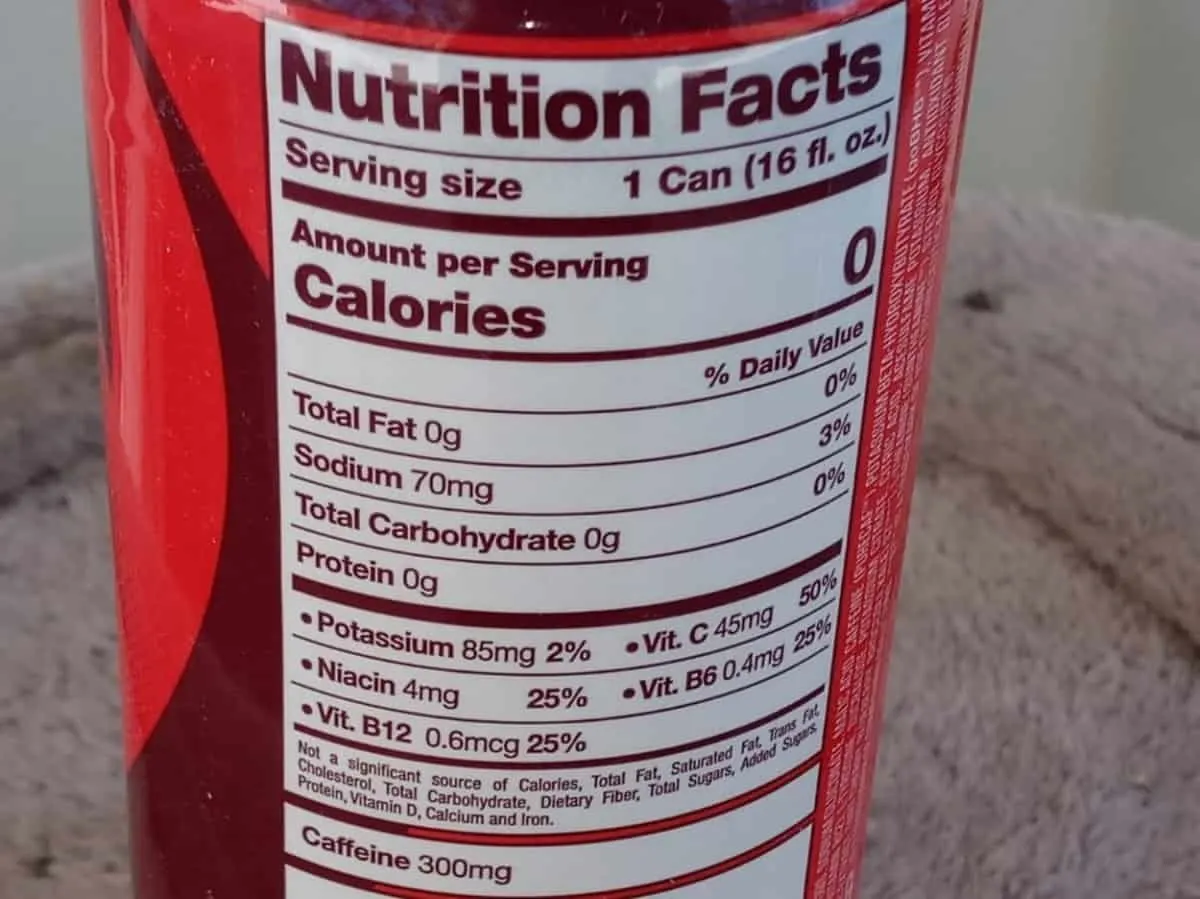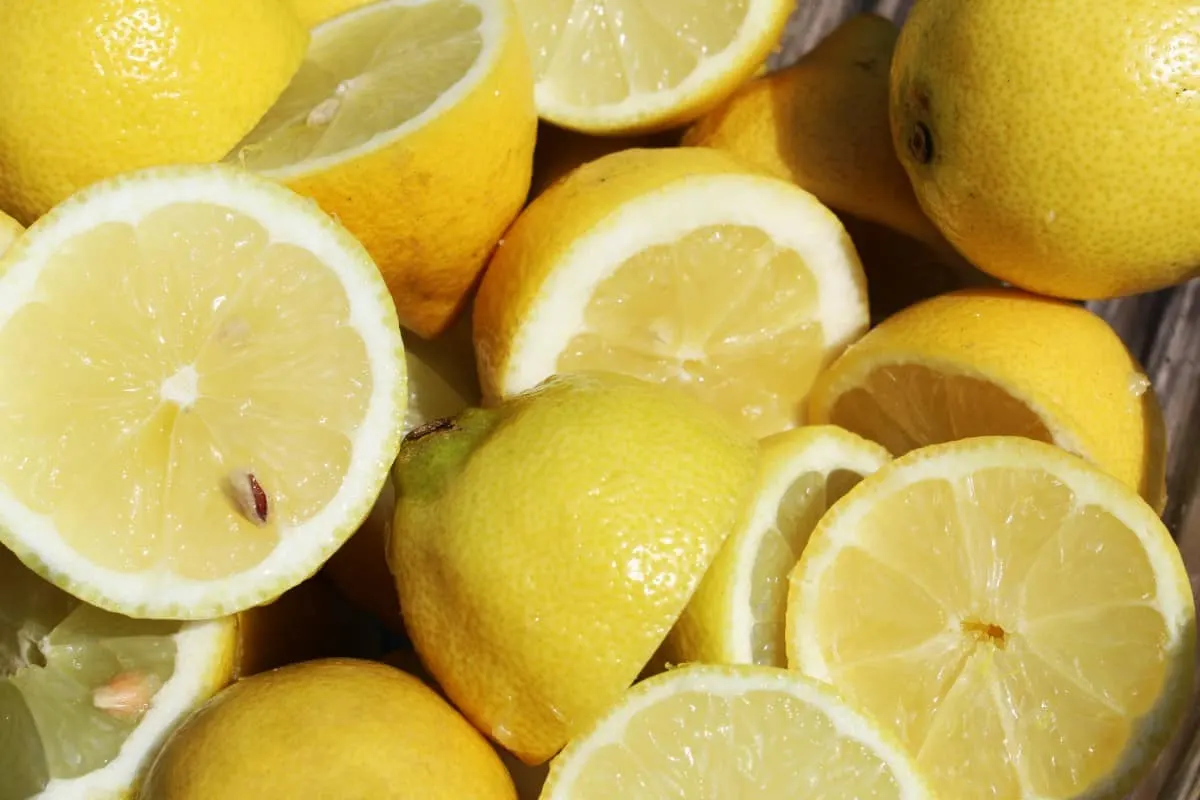Veganism is a tricky concept to understand given that there’s always so much that needs to be considered including food and drink options.
Most energy drink brands like G Fuel are gluten-free but does this equate to being a good vegan alternative?
G Fuel can is vegan and doesn’t contain any animal by-product in its ingredients. However, it does have other components that vegans may not be comfortable dealing with due to certain factors.
What are these ingredients and why some vegans wouldn’t consider having them?
Read through the article and learn about G Fuel can as an option for those wanting to go on a vegan diet.
But first, let’s define what vegan diet is.
Contents
What is a Vegan Diet?
Put simply, a vegan diet is a form of diet wherein any and all animal products and by-products are being avoided. This means that whoever decides to engage in veganism also decides to stop consuming meat, seafood, dairy products, and eggs. Instead, they get all their nutrition from grains, fruits, and vegetables.
Through the years, veganism has been associated with a number of health benefits. These include being less likely to contract heart disease and having lower blood sugar.
Other health benefits of veganism are:
- Having more of certain nutrients
- Weight loss
- Improved kidney function
- Less pain from arthritis
However, a vegan diet is not without its drawbacks. Observing a vegan diet may result in you having insufficient B-vitamins and some other nutrients as they’re usually found in red meat.
Why go vegan though?
Some people do it to avoid engaging in what they believe to be animal cruelty. They come to realize that killing animals for food is not worth it. Others, however, do it for health benefits and don’t need any other kind of motivation.
There are also people who go vegan to help the environment. The reasoning behind this is that the meat industry produces a lot of greenhouse gases that harm the atmosphere.
As for whether or not it actually works, it varies between people and between circumstances. Whatever the case, the most important factor in being a successful vegan is planning your diet properly.
G Fuel Can Nutrition Facts
A quick look at the nutrition facts of a G Fuel can.
| Nutrient | Amount per Serving (16 fl.oz) |
| Calories | 0 |
| Total Carbohydrates | 0g |
| Sugar | 0g |
| Sodium | 70mg |
| Protein | 0g |
| Potassium | 85mg (2%) |
| Niacin (Vitamin B3) | 4mg (25%) |
| Vitamin B6 | 0.4mg (25%) |
| Vitamin B12 | 0.6mcg (25%) |
| Vitamin C | 45mg (50%) |
| Caffeine | 300mg |

If you would like a more in-depth look at what your body is getting out of a can of G Fuel, have a look at my G Fuel Can Nutrition Facts, where I go into everything with a lot more detail.
G Fuel Can Ingredients List
According to the back of the can, you can find these ingredients in G Fuel:
- Carbonated Water
- Natural Flavors
- Artificial Flavors
- Sodium Gluconate
- Malic Acid
- Caffeine
- Potassium Beta-Hydroxybutyrate
- Maltodextrin
- Vitamin C
- Vitamin B3
- Vitamin B6
- Vitamin B12
- L-Tyrosine
- Sucralose
- Potassium Citrate
- Citric Acid
- Acesulfame Potassium
- Green Coffee Bean Extract
- Green Tea Extract
- Turmeric Extract
- Tart Cherry
- Blueberry
- Broccoli
- Kale
- L-Theanine
- Steviol Glycosides
Is Caffeine Vegan?

Yes, caffeine is vegan. In fact, even coffee can be considered vegan as long as you don’t mix any dairy product or honey into it.
Caffeine is a stimulant, so it’s a type of substance that promotes alertness and keeps you awake while you’re experiencing its effects. It comes from all the different kinds of coffee beans you can find worldwide. So there are no animals or animal by-products involved from start to finish.
As for other things you should know, the average G Fuel can have 300mg of caffeine in its formula.
Why does that matter? Experts say that a healthy adult can safely ingest 400mg of caffeine at most. In practice, that’s equivalent to 4 cups of coffee. So drinking a can of G Fuel fulfills 75% of your daily limit.
Going over that can lead to any number of unpleasant health consequences.
The most common of these are insomnia (difficulty sleeping), headaches, and feeling jittery twitching. But there are even worse ones that can happen if you really take things too far like muscle breakdown and addiction.
Are Artificial Sweeteners Vegan?

Artificial sweeteners have no animal by-products, but some vegans might feel uncomfortable having them in their drink because of possible links to animal testing.
To be specific, the artificial sweeteners in the can version of G Fuel are Sucralose and Acesulfame Potassium (Ace-K).
Sucralose is made from sugar. It’s produced in a lab setting through a process wherein three hydrogen-oxygen groups are replaced with chlorine molecules.
The result is a substance 600 times sweeter than sugar and with very few calories. Sucralose has less than five calories overall, which is why it can use the “zero calories” label in its packaging.
Ace-K is also made in a lab where it’s synthesized by combining Acetoacetic acid with Potassium. The end result would be a crystalline powder that’s 200 times sweeter than sugar and has a bitter aftertaste. Like sucralose, it also has few enough calories to be considered a zero-calorie product.
This aftertaste is the reason why you often see Ace-K paired with sucralose or a different artificial sweetener when it comes up on the ingredients list.
Where does the animal testing come in?
Many tests have been conducted over the years to see how safe artificial sweeteners are. Researchers have been studying the effects of artificial sweeteners on the body too.
Since it takes time before human testing can be done, most of these tests are conducted on animals instead.
Sucralose has been tested on animals ranging on dogs, monkeys, rabbits, and mice. As of today, an estimated 12,800 animals have died in the process of studying what sucralose does to the bodies of those who ingest it.
The animals were also said to have been put through inhumane conditions. And the methodologies of the experiments done to them weren’t much better.
Ace-K is in a similar situation. It’s being tested on animals for the same reasons sucralose is. However, the experiments are not supported or commissioned by the company that produces them. They’re done in universities and by people who are independent of the companies involved in Ace-K’s production.
Since the companies that manufacture and produce Ace-K don’t have anything to do with the experiments, some vegans believe it’s alright to consume Ace-K. This is because the companies’ lack of involvement in the experiment means buying the product doesn’t mean supporting the cruel treatment of the lab animals.
Are Stevia Sweeteners Vegan?
Yes, Stevia sweeteners are vegan.
Likewise, Stevia sweeteners are a kind of sugar substitute. However, instead of being made through chemical reactions in a lab, Stevia sweeteners are derived from a plant.
Stevia sweeteners are made by extracting the steviol glycosides from the Bertoni plant’s leaves. After the steviol glycosides are extracted from the leaves, they’re purified to remove their bitter aftertaste.
The Bertoni plant is from Brazil and has been used in food for centuries. In the present, its crude extract is also sold as a dietary supplement.
Like sucralose, it’s not absorbed into the gastrointestinal tract during digestion. Instead, the steviol backbone of the substance is used as a source of energy and everything else is excreted through urine.
Other than caffeine and artificial sweeteners, there are some ingredients that are controversial in terms of its production and as to whether or not they are vegan-friendly.
Is Malic Acid Vegan?
Malic acid is vegan and is a naturally occurring substance that gives fruits and vegetables their sour taste. It’s also sometimes used as a medicine for dry mouths.
It’s considered vegan since although it can be derived from animals who eat fruits and vegetables, it almost never is in practice. Besides fruits and vegetables, you can also find Malic acid in packaged foods.
Is Citric Acid Vegan?

Citric acid is vegan and is both a preservative and an acidulant.
A preservative is a substance that extends the shelf life of the food and beverages it’s used on. Meanwhile, an acidulant is a substance that adjusts the acidity level of the drinks and medicines it’s used on to make them fit for consumption.
Most people associate citric acid with citrus fruits and (correctly) assume it comes from those. But most of the citric acid used in the food industry is actually produced in labs.
The process of creating citric acid in the lab doesn’t involve any animals either. I say that because citric acid from a lab is made by fermenting carbohydrate substances with Aspergillus fungi.
Is Maltodextrin Vegan?
Maltodextrin is vegan a common food additive that’s used to preserve, sweeten, thicken, and adjust the texture. It’s made from starch that’s usually from corn. The processing also doesn’t involve animals, so it’s definitely vegan-friendly.
The only time maltodextrin isn’t vegan is when it’s used in an insecticide. Vegans believe it’s a preferable substitute to the toxic chemicals that are also used in insecticide but don’t condone its use to kill insects.
Are Natural Flavors Vegan?
Natural flavors are usually vegan.
Natural flavor is a broad term that could be used to describe any product that comes from nature. Of course, this also includes meat, eggs, and dairy as much as it does fruits and vegetables.
Some companies use it to hide that they’re using ingredients that aren’t vegan or vegetarian. Or gross things most people would never buy on purpose. An example of this is insect parts like beetle glands and beaver glands.
However, you have to remember that what “natural flavors” mean varies from product to product. Sometimes, it’s a trick like mentioned. Other times, it just means non-based ingredients.
How do you know if the natural flavor you’re looking at is vegan then?
What you can do look them up online or read reviews you can find on credible sources.
Are Artificial Flavors Vegan?
Artificial flavors are vegan-friendly.
Artificial flavors refer to ingredients that are made from neither plant or animal. So by definition, they’re vegan.
And as for whether or not artificial flavors are tested on animals: it happens but it’s not common. What happens is that they’re tested on animals when they’re first invented, but never again once they’re confirmed to be safe to consume.
Final Thoughts
G Fuel cans are vegan. However, the artificial sweeteners and possibly the natural and artificial flavors could be ingredients some vegans would want to avoid anyway.
Veganism is a lifestyle choice wherein the individual avoids any food or ingredient that either contain animal or animal by-products.
It’s done for a variety of reasons, including but not limited to wanting health benefits and not wanting to support animal cruelty.
In the end, whether or not you still want to drink a can of G Fuel after reading all this is up to you.
If you’re into veganism for the health benefits, then artificial sweeteners, natural flavors, and artificial flavors shouldn’t be much of an issue. But if you’re considering being vegan for ethical reasons, then you might want to research other alternatives to make sure that a certain product is actually cruelty-free.
Remember that veganism doesn’t just refer to choosing what you eat, it also applies to products you use, whether it’s makeup, bags, clothing, and so on.
